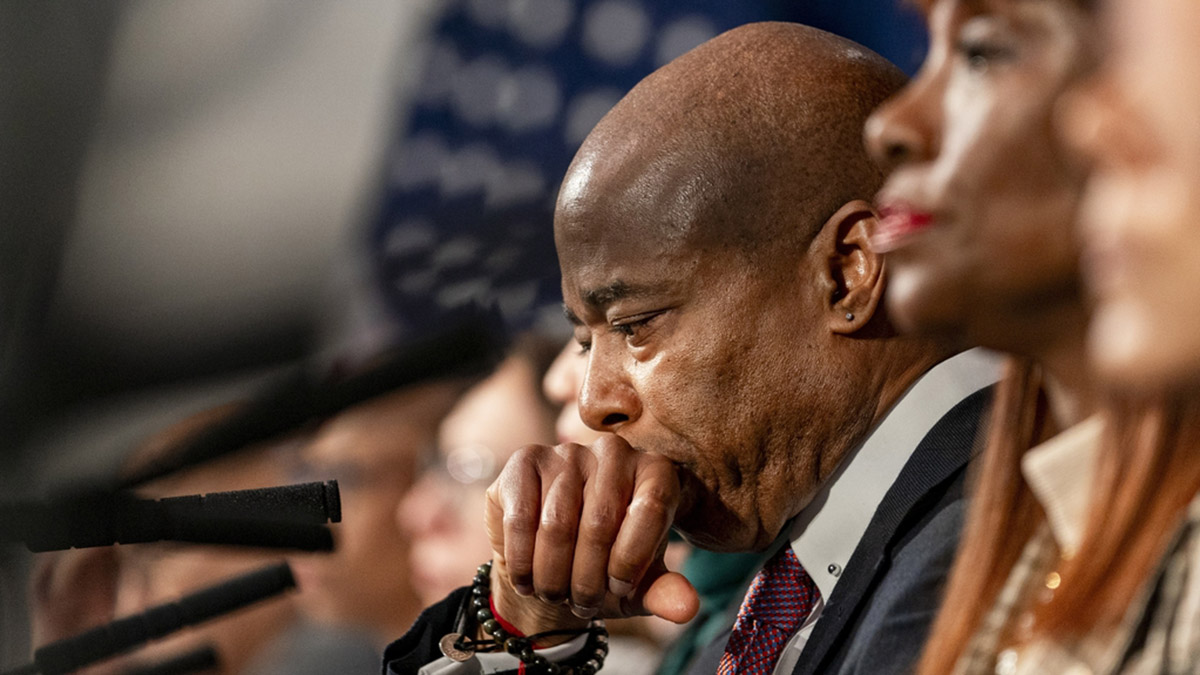On September 25, 2024, New York City Mayor Eric Adams was indicted in a significant federal investigation into his 2021 mayoral campaign. The charges, though still sealed, reportedly centre around his alleged connections with Turkish officials and businessmen, who are suspected of funnelling illegal campaign donations through straw donor schemes. Adams’ indictment marks a historic moment, making him the first sitting mayor of New York City to face criminal charges while in office, an unprecedented blow to his political career and his administration.
The federal investigation focussed on whether Turkish nationals, seeking to influence New York City’s political landscape, illegally channelled campaign contributions to Adams through construction companies with ties to the Turkish government, a report in the Politico said. Earlier this year, authorities seized Adams’ phone and iPad, an extraordinary move for a sitting mayor. Moreover, three of his aides faced raids by federal agents, further intensifying the probe.
Despite the mounting legal pressure, Adams has repeatedly denied any wrongdoing. In a public statement, he dismissed the indictment as politically motivated and pledged to continue his duties as mayor. This scandal, however, casts a significant shadow over his administration and could jeopardise his chances for re-election in 2025.
Expanding threat of foreign influence in US politics
The indictment of Mayor Adams is just the latest example of the increasing concerns over foreign interference in US politics. For years, foreign governments and actors have tried to influence the American political process, sometimes successfully. The use of political donations, lobbying and even espionage has become a sophisticated tool for foreign actors to exert influence on US decision-making, often undermining national security and the democratic process.
Impact Shorts
More ShortsCampaign finance laws in the US are designed to protect elections from foreign interference, yet they are frequently exploited. The Adams case may reveal just how vulnerable political campaigns are to foreign funds, especially when routed through intermediaries such as businesses, straw donors or shell companies. In Adams’ case, Turkish nationals allegedly used these methods to inject money into his campaign, possibly with the goal of shaping his political positions on issues related to Turkey.
Such interference raises alarming questions about the integrity of the political system, particularly in a city as globally influential as New York. The Adams investigation may only be the tip of the iceberg, highlighting broader vulnerabilities in how political donations are monitored and the ease with which foreign actors can bypass regulations.
Recent cases highlighting foreign influence
In addition to Adams, several other cases have emerged, illustrating the ongoing threat of foreign meddling in US politics. One high-profile example is Linda Sun, a former aide to New York Governor Kathy Hochul. Sun was arrested for allegedly acting as an agent for the Chinese government, using her position to block access for Taiwanese officials and promote Chinese interests. Her case demonstrates how foreign influence can penetrate the highest levels of state government and policy-making.
Similarly, former New Jersey Senator Bob Menendez was convicted earlier this year for accepting bribes from Egyptian officials in exchange for using his position to influence US policy in favour of Egypt and Qatar. Menendez’s case drew widespread attention due to the scale of the bribes and the seriousness of the charges, which involved compromising US foreign policy decisions.
These cases emphasise the growing concern that foreign governments are using financial incentives and other forms of influence to manipulate US politicians and government officials. The damage goes beyond mere corruption as it can affect international relations, policy decisions and even national security.
Risks of espionage and compromised officials
Foreign influence in politics is not limited to campaign donations and lobbying, espionage remains a constant threat. Several high-profile cases of espionage have compromised US national security, often involving officials and public servants who were turned against their country.
Perhaps the most notorious example is Robert Hanssen, a former FBI agent who spied for Russia for over two decades. Hanssen’s betrayal exposed numerous US intelligence operations, causing irreparable damage to the country’s intelligence network. Hanssen was arrested in 2001 and sentenced to life in prison without parole. Similarly, CIA officer Aldrich Ames provided Russian intelligence with the names of American informants resulting in their execution. He was arrested in 1994 and is currently serving a life sentence without parole.
More recently, former CIA officer Kevin Patrick Mallory was sentenced for selling US defence secrets to the Chinese government. Mallory’s actions were motivated by financial gain as were many other cases of espionage. The common thread running through these cases is the ability of foreign powers to exploit weaknesses in the US system—whether through greed, ideology or coercion.
Broader implications for 2024 elections
The timing of the Adams indictment is especially significant as the US prepares for the 2024 presidential elections. Allegations of foreign interference are already a major issue, with concerns that nations like Russia, China and Turkey may attempt to influence the outcome. The Adams case is likely to be scrutinised in the context of these broader concerns as Americans demand transparency and integrity from their political leaders. As the 2024 election season intensifies, the indictment of a sitting mayor like Adams serves as a stark reminder of the vulnerabilities in the US political system.
A call for vigilance
Adams’ indictment, though still in its early stages, is emblematic of the growing issue of foreign interference in US politics. Whether through campaign donations, espionage or covert influence, foreign actors continue to pose a significant threat to American democracy. The Adams case serves as a critical reminder for US officials and voters alike to remain vigilant and ensure that safeguards are in place to protect the political system from corruption and foreign manipulation.


)

)
)
)
)
)
)
)
)



